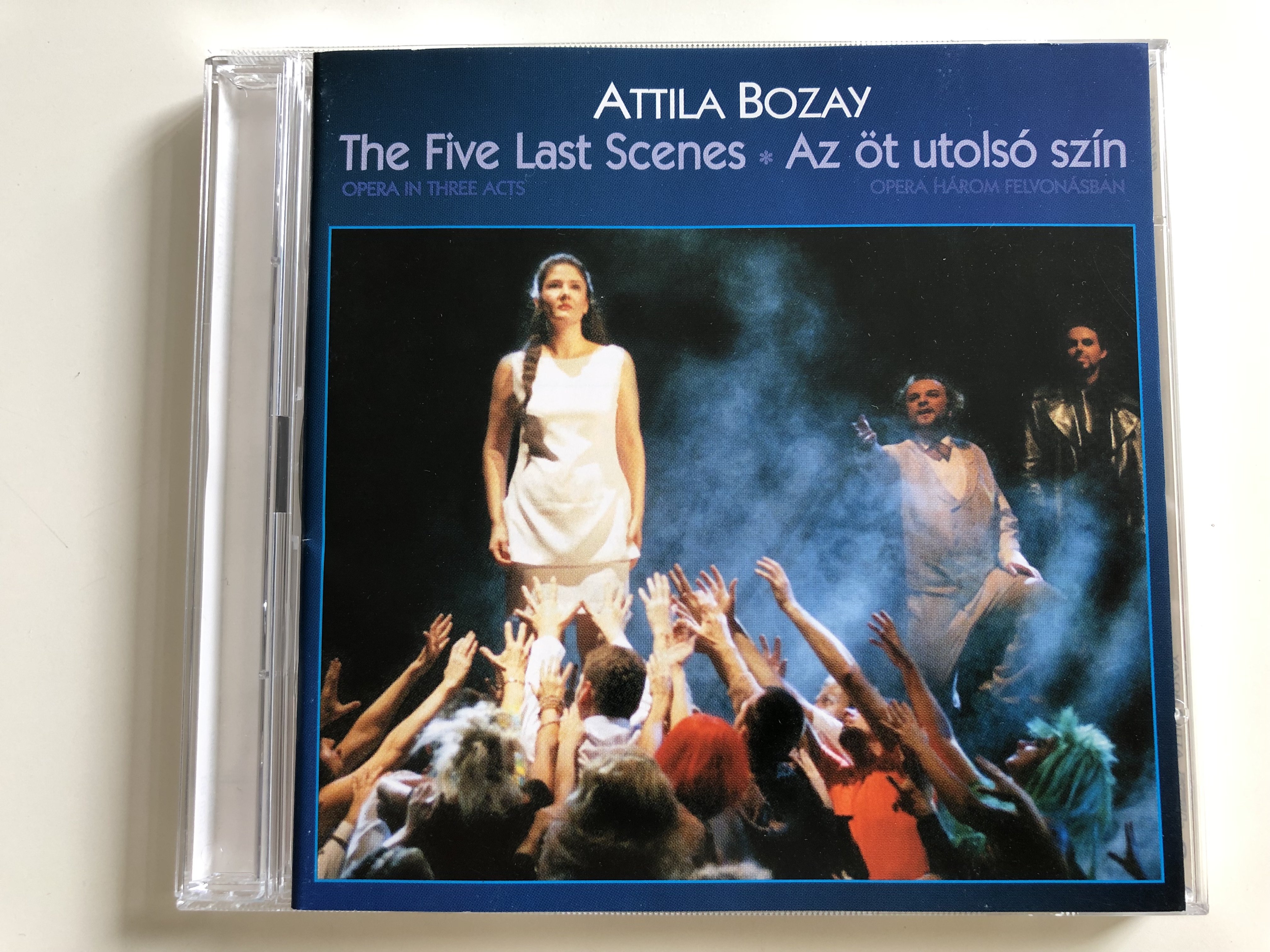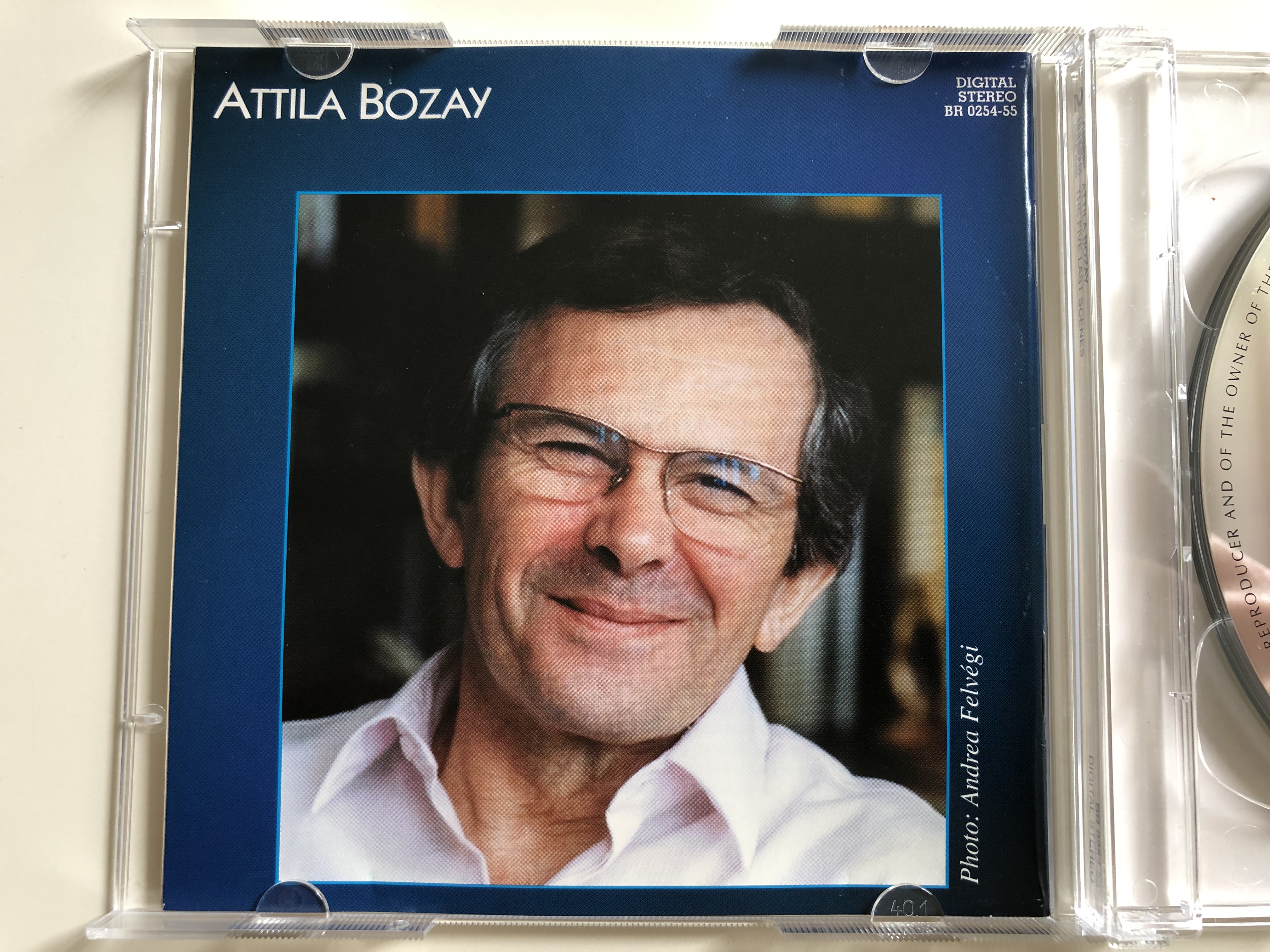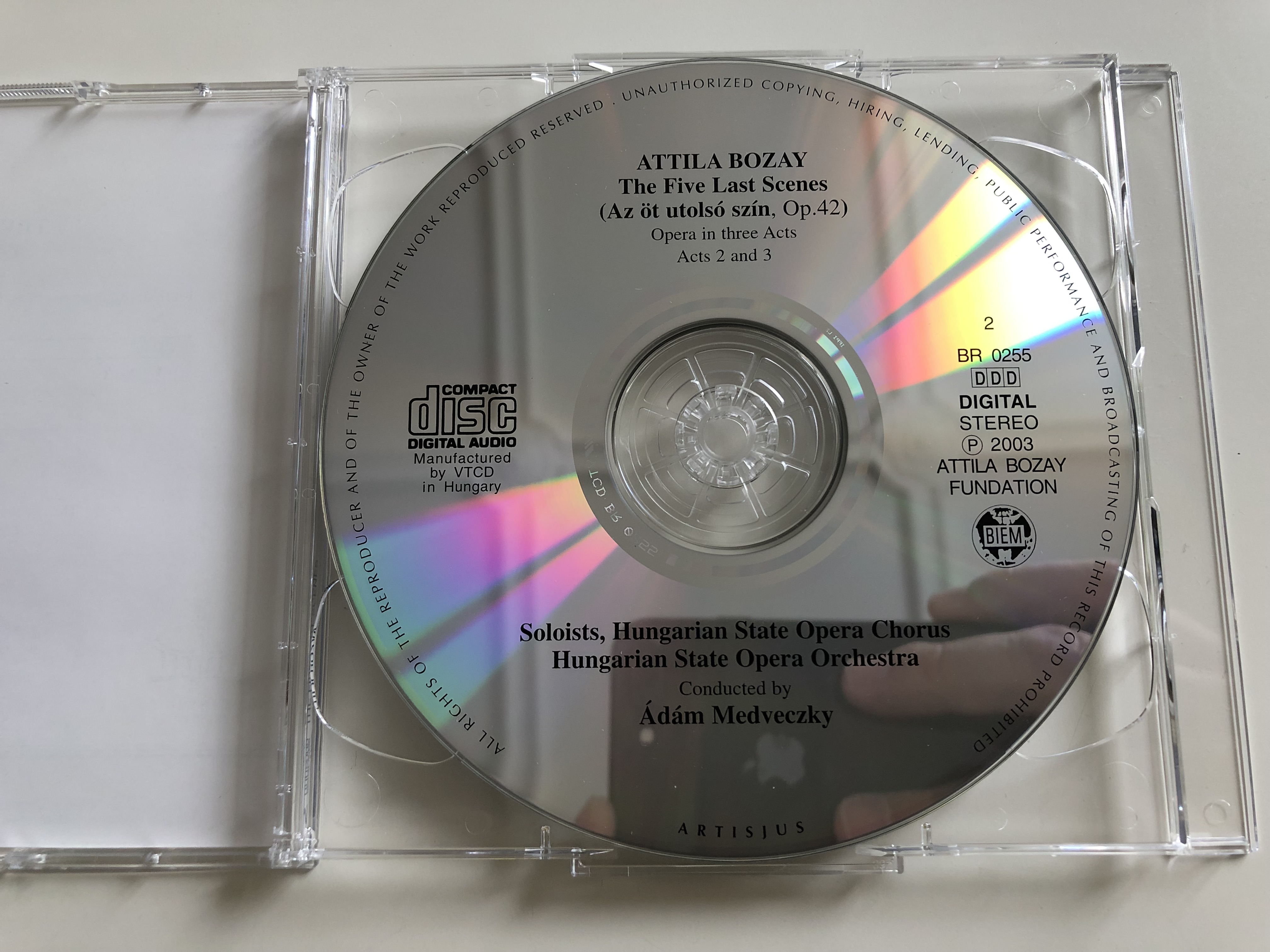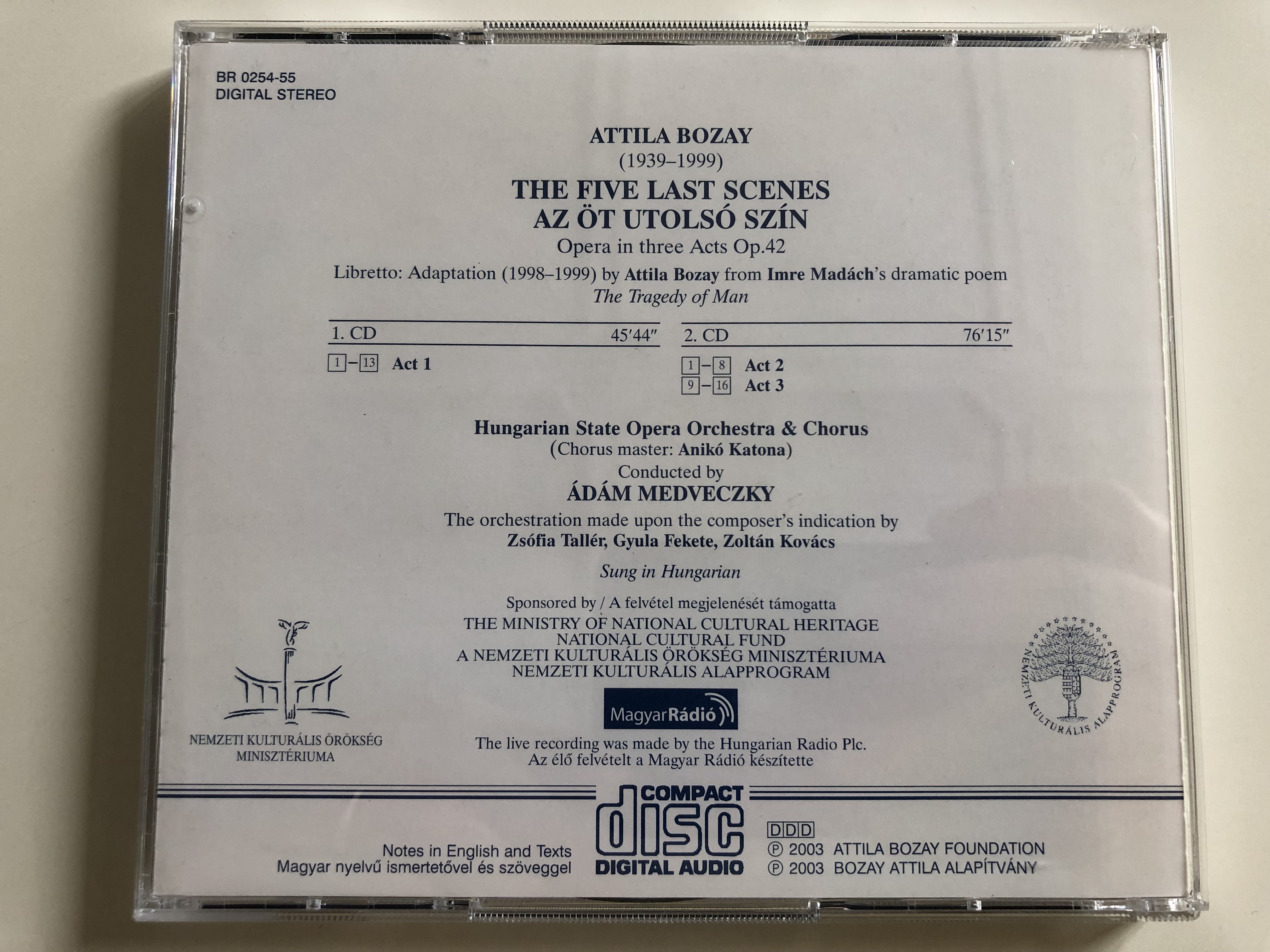Description
Attila Bozay - The Five Last Scenes / Opera in 3 acts / Az öt utolsó szín - Opera Három felvonásban / 2x Audio CD 2003 / Based on The Tragedy of Man by Imre Madách
BR0254-0255
MADE IN HUNGARY
TOTAL TIME: 45:44 + 76:15 (2 DISCS)
UPC 5998168599892
English Summary:
Attila Bozay (1939-1999) wrote his final work, utilising motifs from Imre Madách's The Tragedy of Man, for the Hungarian Millennial Opera Competition. Although the jury was unanimous in awarding the work first prize, Bozay would not make it to see the decision, and the task of scoring the three-act opera was completed by three of his students. The work is a true novelty, rarely presented to audiences. “Even in his final period of creativity,” wrote Tibor Tallián, “Bozay resisted the temptation to reveal his naked emotions to either himself or others. He was speaking of himself, of course, but he was also speaking about the times and about humanity as a person living out his final days in the final days of the era. By focusing on the five final scenes in Madach's framework and thus rendering this tragedy of history ahistorical, he reflected the post-historical consciousness of today.”
Tracklist:
CD 1
I. felvonás
1. No. 1 Prologo
2. Zúg az élet tengerárja = Life's an ocean ; Ez az, amiért mindig epedtem... = This is the world...
3. No. 2 Variazioni
4. Csak erre, erre, kedves jó urak = This way, this way ; Aki munkás hét után = A worker when his week is done
5. No. 3 Rondo + 6. Oh, Lucifer! Ily hitvány helyen tartasz le = Ah Lucifer! Just look, while you intist
7. Oh, szent költészet = O poetry, are you to disappear
8. El velük. = Away with them!
9. Félre az útból! = Get out of my way
10. Vehetne ön vásárfiát nekem = You could buy me a little present
11. Siessünk = Harry up! ; Istenem, mi ez? = What's this?
12. No. 4 Duetto - Dialogo ; Ismét csalódtam = More disillusion
13. No. 5 Danse macabre - Finale ; Csak rajta = Dug on, dug on
CD 2
II. felvonás
1. No. 1 Introduzione: Mi ország ez? = Where are we now?
2. No. 2 Concersazione: Szóljunk be a tudóshoz = Let's speak to this scientist
3. No. 3 Arioso e discussione: Ez eszme nálunk a megélhetés = The ideal that binds our people is subsistence
4. No. 4 Scena I.: Mit jelent ez? = What does that bell mean?
5. No. 5 Scena II.: Ma két gyerek tölté... = Today two children have outgrown...
6. Ne szánjatok = Don't pity us!
7. No. 6 Finale: Őrült röptünk = How furiously we have flown
8. Élek megint = I live again
III. felvonás
9. No. 1 Aria: Mit járjuk ezt... = Why must we roam this
10. No. 2 Scena III.: Léteznek hát mégis... = And do the gods still live above?
11. Sokan tengődtök-é még e vidéken? = Are many of you living in this district?
12. No. 3 Coro e Duetto: Körültem minden úgy él = The world around me smiles
13. No. 4 Terzetto: Mily badar beszéd! = What nonsense you do talk!
14. No. 5 Conclusione: A porba, szellem! = And you, spirit...
15. Nagyság s erény lesznek tehát vezérid = Nobility and virtue guide your steps
16. Szabadon bűn s erény közt = To make free choice of vice or virtue
Conducted by Ádám Medveczky
Magyar Állami Operaház Zenekara és Énekkara
Attila B. Kiss (Ádám) ;
Mónika González (Éva) ;
Attila Réti (Lucifer) ;
Csaba Airizer (az Úr) ;
László Bárány Paál (Lovel, aggastyán) ;
József Pető (tudós) ;
Antal Pataki (Negle) ;
Ferenc Gerdesits (eszkimó) ;
Judith Németh (a Föld szelleme) ;
Katalin Mészöly (cigányasszony) ;
Gábor Németh (bábjátékos) ;
Lászl Szvétek (korcsmáros) ;
István Berczelly (Luther) ;
Bence Asztalos (zenész) ;
Gábor Csíki (Cassius) ;
Zsolt Molnár (katona) ;
Erzsébet Pele (Éva anyja) ;
Ildikó Cserna (kéjhölgy) ;
Gábor Jenny (ékszerárus) ;
Lucia Megyesi Schwartz (virágárus leány) ;
Gábor Csíki, Zoltán G. Tóth (két mesterlegény) ;
Imre Ambrus, Attila Bura (két gyáros) ;
Imre Szilágyi, Géza Klucsik (két koldus) ;
Györgyi Láng (Anya) ;
Ágnes Turpinszky (leány) ;
Magda Adamovits, Lívia Buváry (polgárlányok) ;
György Derzsi, Sándor Bartus, Ferenc Anger, Péter Illés, Richárd Rest, Ferenc Kozári (tanulók)














































